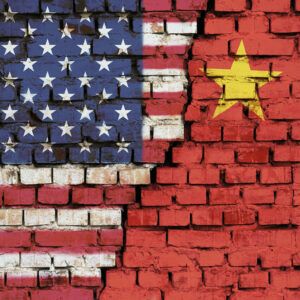There is a growing hope that the changed economic outlook for China may create new opportunities for détente in U.S.-China relations. Many expect a new attitude of compromise by Chinese officials seeking foreign investment to boost a sluggish economy.
The meeting in August of Commerce Secretary Gina Raimondo and her counterpart in China, Wang Wentao, did produce more in the way of a concrete commitment than prior visits of Secretary of State Antony Blinken, Treasury Secretary Janet Yellen, and Special Presidential Envoy for Climate John F. Kerry.
During Raimondo’s visit, the two sides agreed to new communication channels to discuss commercial issues and exchange export control information. But it is far too early to conclude that this is the beginning of a new departure. The fundamental mismatch in perceptions and interests between the two countries could stymie meaningful economic cooperation.
China wishes the relationship with the United States to be primarily transactional. As Wang remarked, “Economic relations are the ballast of China-U.S. relations.”
But he also warned that “generalizing national security is not conducive to normal economic and trade relations.” Nevertheless, it is necessary to take a broad view of trade and technology to see why the economic relationship between the United States and China is multifaceted and laden with potential and pitfalls.
Chinese officials want contrasting perceptions on governance, human rights and the state’s role in economic affairs to be factored out of trade. Instead, they assert China’s sovereign right to policies that ensure its technological catch-up. Its argument has consistently been that it is merely going through a developmental phase similar to what Western nations experienced. In this context, they see technology transfer as legitimate.
They have repeatedly asserted that concerns about intellectual property theft, forced technology transfers, and lack of a level playing field are efforts by the United States to deny this legitimate “developmental” right. They back this claim up with a litany of grievances while asserting that any external pressure, such as sanctions or trade restrictions, is a violation of that sovereignty, motivated by a desire to contain China’s rise and spread Western ideals.
Media narratives that portray the United States as trying to suppress China’s rise have played a significant role in shaping public perceptions. That narrative includes the idea that the present tensions stem from the “trade wars” initiated during the Trump administration. This misrepresents the failure of three successive American administrations to reach a bilateral trade agreement.
The tariffs and retaliatory measures occurred only after the failure to negotiate an agreement. The negotiations began during the George W. Bush administration and continued through the Barack Obama administration; they failed to achieve significant reductions of trade barriers by China. Trump insisted upon equal access for equal access. The issue of fair-market access for American companies remains far from being resolved. A law-based framework to address the unfair trade practices, intellectual property theft and forced technology transfers that have strained relations is still very far away.
Finally, the Chinese media often emphasize that the economic relationship is mutually beneficial and criticizes the United States for not recognizing this. This view is naïve. Russia’s invasion of Ukraine has made investors question autocracies and reduce their appetite for direct investment. Firms are reacting to what they perceive as genuine commercial risks.
Building trust, setting clear rules of engagement and fostering people-to-people ties will be essential but insufficient to overcome perception barriers and realize the full potential of U.S.-China economic relations.
The path toward meaningful economic cooperation will require diplomatic and political maneuvering and a considerable shift in both countries’ public opinion and media narratives. It is easy to agree that lost opportunities for both countries will result, considering their massive consumer markets, technological expertise and resources. However, the fundamental mismatch in perceptions is real and will affect economic cooperation.
The Chinese wish that the United States desist from perceptions that economic ties are also security risks is unrealistic. Secretary Raimondo will need help convincing American workers and defense officials that what is good for American corporations is also good for the health of American society. Many believe that what’s good for global supply chains and the global economy may not always be the best thing for America.


